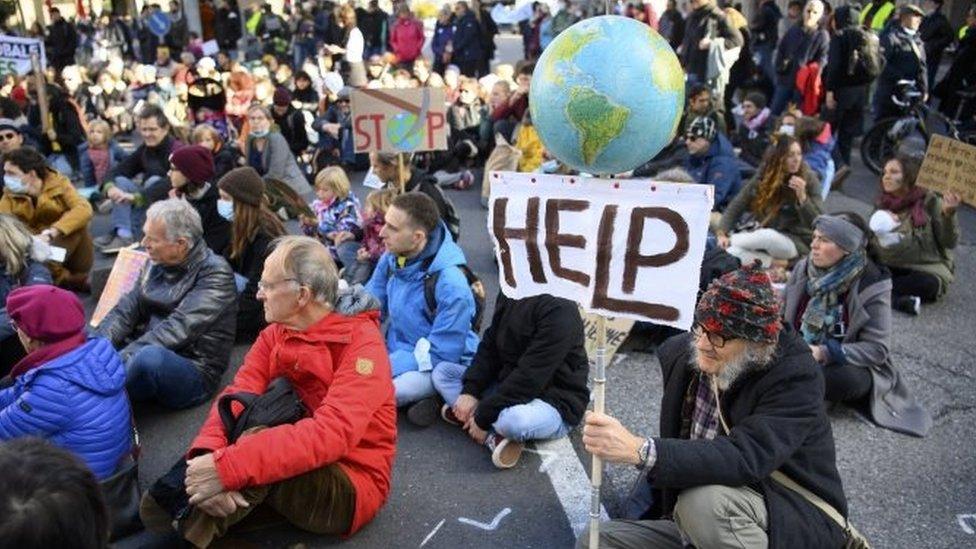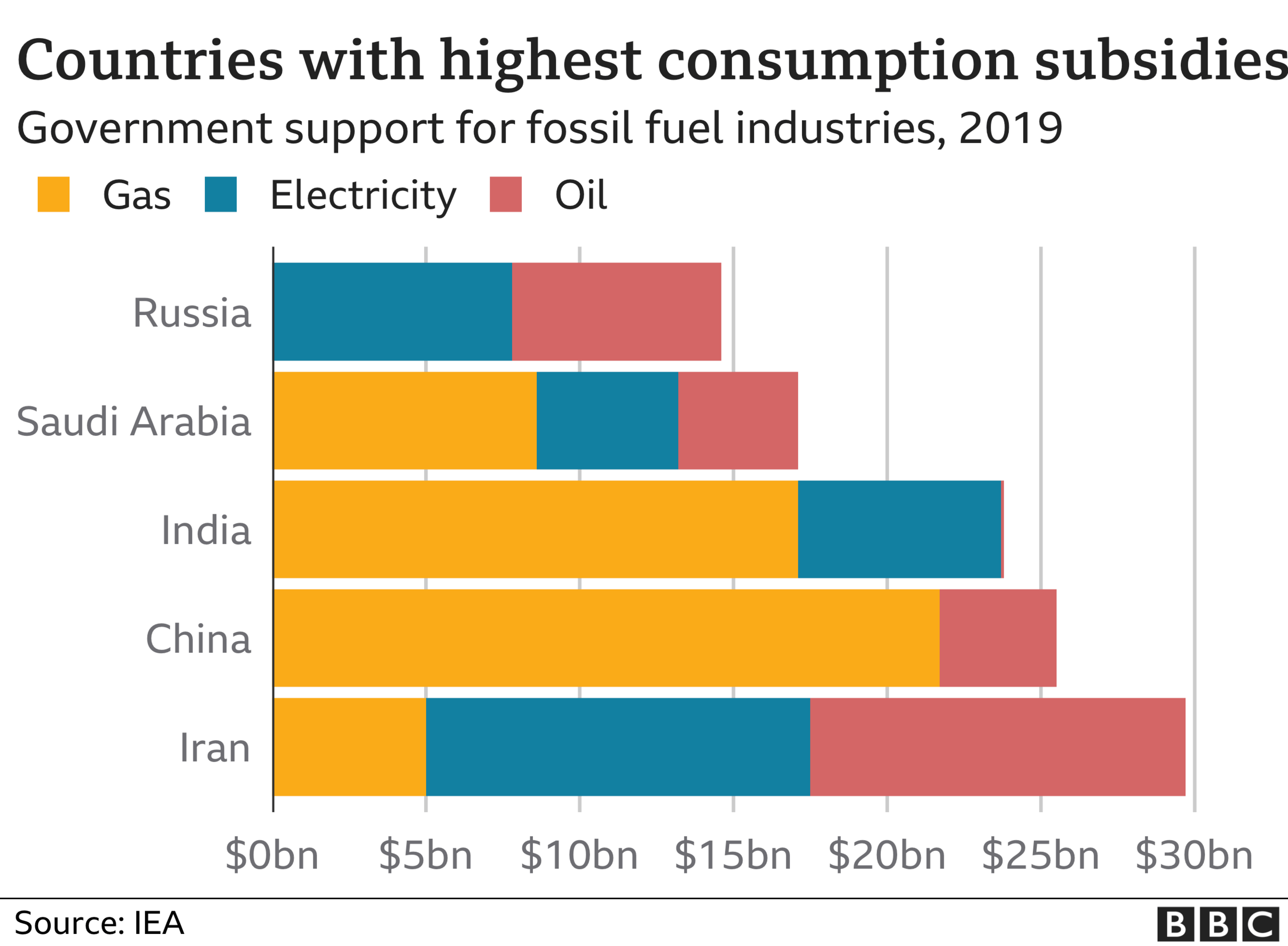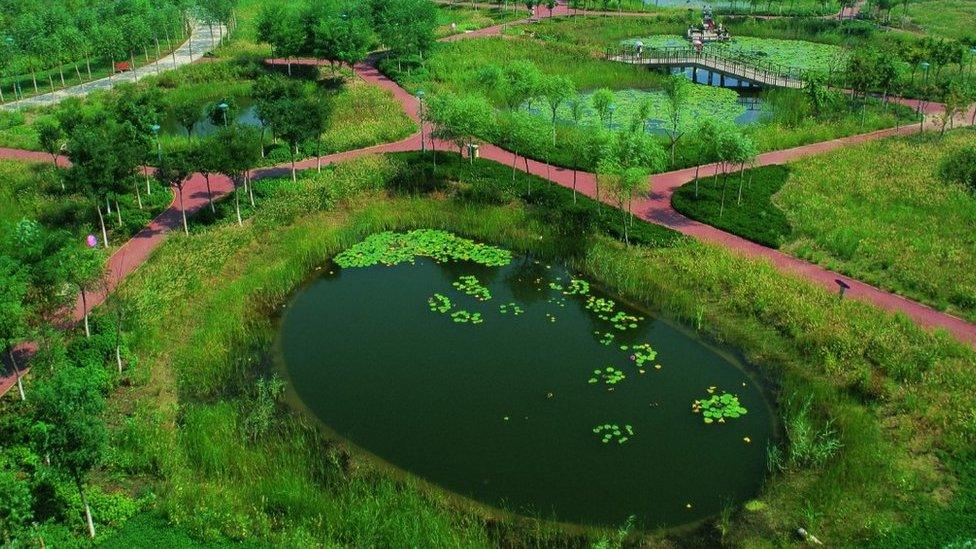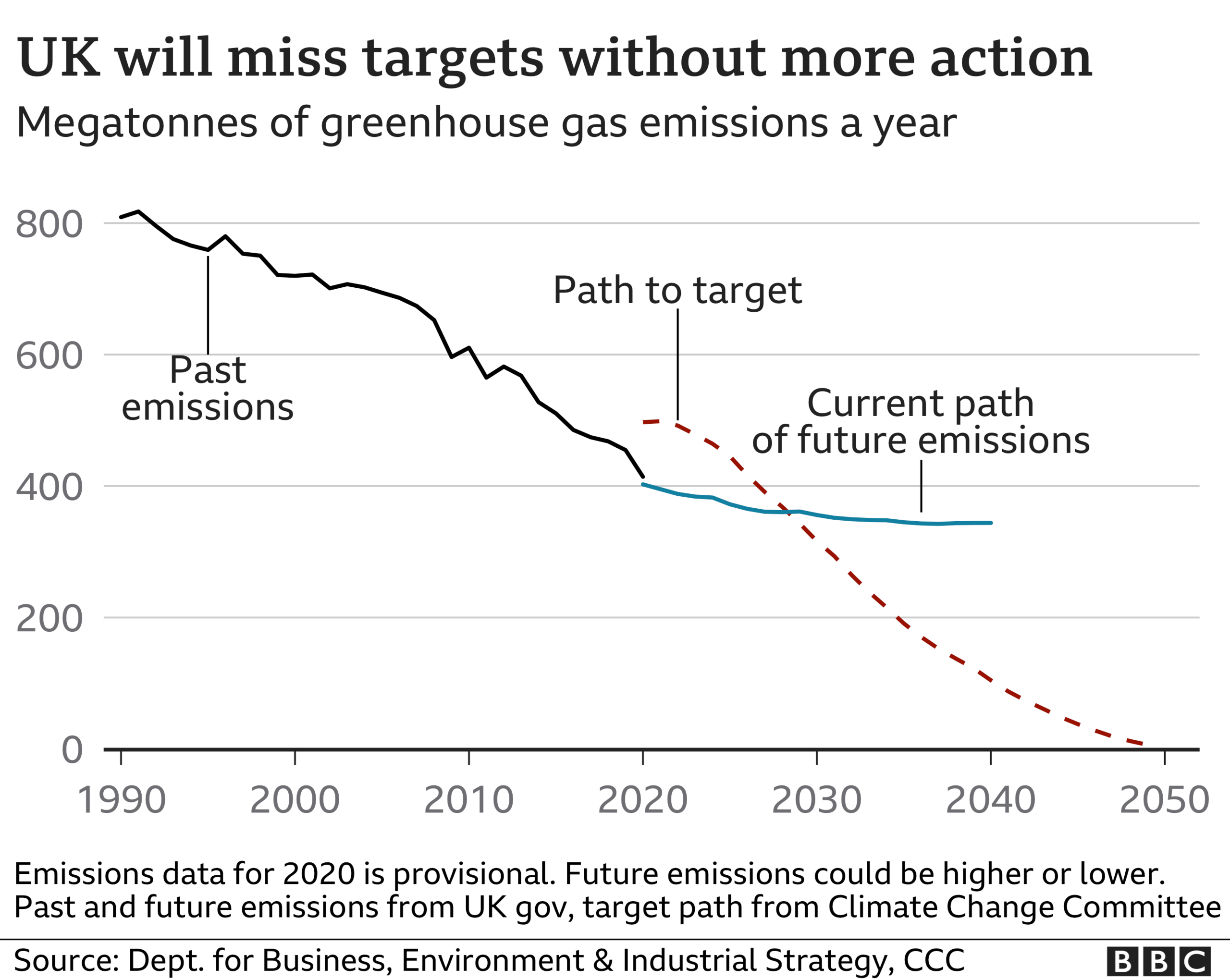COP26: US-China climate agreement and fossil fuel spending
- Published
Here are five things you need to know about the COP26 climate change conference on Thursday.

1. Cautious welcome for US-China climate agreement
There's been a cautious welcome by activists and politicians to the unexpected announcement that the US and China would work together to tackle climate change. The EU and UN say the declaration is encouraging, and an important step, while Greenpeace believes the two nations need to show greater commitment to reaching climate goals. The US-China declaration was announced as COP26 in Glasgow nears its end sees the two countries - the two biggest carbon dioxide, CO2, emitters in the world - vow to boost climate co-operation over the next decade. The global rivals say they will work together to achieve the 1.5C temperature goal set out in the 2015 Paris Agreement. Keep up with the day's events here.


2. How much is still spent supporting fossil fuels?
Despite promises to invest in green energy, many governments still financially back the fossil fuel industry - emissions from which are one of the primary causes of global warming. According to the UN Development Programme, the world spends more than $420bn (£313bn) a year subsidising non-renewable energy. But what are fossil fuel subsidies and which countries are spending the most? Find out here.


3. 'I grew up seeing typhoons in my community'
Mitzi Jonelle Tan from the Philippines, Gaston Tenembaum from Argentina, and Dominique Palmer from London are passionate about the environment. They are all attending COP26 and we've asked them some questions about climate change, their hopes for the conference and their advice for dealing with eco-anxiety. Watch what these climate activists have to say.
Watch: Climate activists from the Philippines, the UK and Argentina take questions on climate change

4. Murals to remember COP26
Every year the Artivist Network - a group of artists and activists - find a space to paint a mural during COP, to leave something permanent and thought-provoking behind after negotiations. It's so people don't forget that this happened in their city, says Daniel Rupaszov, 25, from Hungary. The group visits COP every year to create art that highlights the climate crisis, he says, as he tells us about the murals he's painting.


5. Turning cities into giant sponges to soak up floods
Instead of fearing floods, one man has come up with an idea to embrace them by creating sponge cities to soak up rainfall. Inspired by a near death experience where he was swept into a river, Yu Kongjian decided to use the environment to soak up water, like a sponge. It's been rolled out in cities across China and Yu thinks other places could adopt it too, in the face of more extreme floods linked to climate change. So can sponge cities help combat extreme weather? Take a look.



And there's more...
With just days to go until COP26 finishes, here's a reminder of the UK's climate change strategy. The government wants to dramatically reduce greenhouse gas emissions in a number of ways including a new push towards electric vehicles. The UK's made progress in cutting emissions compared with the levels in 1990, and experts are analysing whether this strategy is enough to meet the 2050 target. They've already pointed out eating less meat or reducing demand for flying - both big sources of emissions - are missing.
We have more details about the plan here.

You can find further information on our climate page.


What questions do you have about changes in our climate?
In some cases your question will be published, displaying your name, age and location as you provide it, unless you state otherwise. Your contact details will never be published. Please ensure you have read our terms & conditions and privacy policy.
Use this form to ask your question:
If you are reading this page and can't see the form you will need to visit the mobile version of the BBC website to submit your question or send them via email to YourQuestions@bbc.co.uk, external. Please include your name, age and location with any question you send in.

